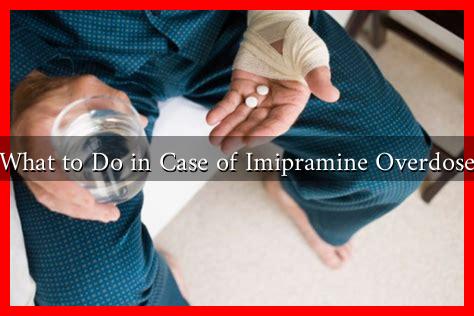-
Table of Contents
What to Do in Case of Imipramine Overdose
Imipramine is a tricyclic antidepressant (TCA) commonly prescribed for depression, anxiety disorders, and certain types of chronic pain. While effective for many patients, an overdose can lead to serious health complications. Understanding the signs of an overdose and knowing how to respond can be life-saving. This article will explore the symptoms of imipramine overdose, immediate actions to take, and long-term considerations for recovery.
Understanding Imipramine and Its Risks
Imipramine works by increasing the levels of neurotransmitters in the brain, which can help improve mood and alleviate anxiety. However, like all medications, it comes with potential risks, especially when taken in excessive amounts. According to the National Institute of Mental Health, TCAs like imipramine can be particularly dangerous in overdose situations due to their effects on the cardiovascular system and central nervous system.
Signs and Symptoms of Imipramine Overdose
Recognizing the symptoms of an imipramine overdose is crucial for timely intervention. Common signs include:
- Severe drowsiness or lethargy
- Confusion or agitation
- Rapid heart rate (tachycardia)
- Low blood pressure (hypotension)
- Seizures
- Difficulty breathing
- Fever
- Coma in severe cases
If you suspect someone has overdosed on imipramine, it is essential to act quickly. The severity of symptoms can vary based on the amount ingested and the individual’s health status.
Immediate Actions to Take
In the event of an imipramine overdose, follow these steps:
- Call Emergency Services: Dial your local emergency number immediately. Provide them with as much information as possible, including the person’s age, weight, and the amount of imipramine taken.
- Do Not Induce Vomiting: Unless instructed by a medical professional, do not attempt to make the person vomit, as this can lead to further complications.
- Monitor Vital Signs: Keep an eye on the person’s breathing and heart rate. If they become unresponsive or stop breathing, be prepared to perform CPR.
- Gather Information: If possible, collect any remaining medication or packaging to provide to medical personnel. This information can help them determine the best course of treatment.
Medical Treatment for Imipramine Overdose
Once emergency services arrive, medical professionals will take over. Treatment may include:
- Activated Charcoal: If the overdose is recent, activated charcoal may be administered to absorb the drug in the gastrointestinal tract.
- Intravenous Fluids: To help stabilize blood pressure and hydration levels.
- Medications: In severe cases, medications may be given to counteract the effects of imipramine, such as sodium bicarbonate for cardiac issues.
- Monitoring: Continuous monitoring of heart rate, blood pressure, and respiratory function will be necessary until the patient is stable.
Long-Term Considerations and Prevention
After an overdose, it is crucial to address the underlying issues that may have led to the incident. This may involve:
- Psychiatric Evaluation: A thorough assessment by a mental health professional can help identify any underlying mental health conditions.
- Medication Review: Discussing alternative medications or dosages with a healthcare provider can help prevent future overdoses.
- Support Systems: Engaging in therapy or support groups can provide emotional support and coping strategies.
Statistics show that approximately 1 in 10 individuals prescribed antidepressants may experience suicidal thoughts or behaviors, highlighting the importance of monitoring and support during treatment. For more information on mental health resources, visit the National Alliance on Mental Illness (NAMI).
Conclusion
Imipramine can be an effective treatment for various mental health conditions, but it carries significant risks, especially in overdose situations. Recognizing the symptoms of an overdose and knowing how to respond can save lives. Immediate action, including calling emergency services and providing necessary information, is crucial. Long-term recovery involves addressing underlying mental health issues and ensuring proper medication management. By understanding these aspects, patients and caregivers can better navigate the complexities of imipramine treatment and overdose prevention.

